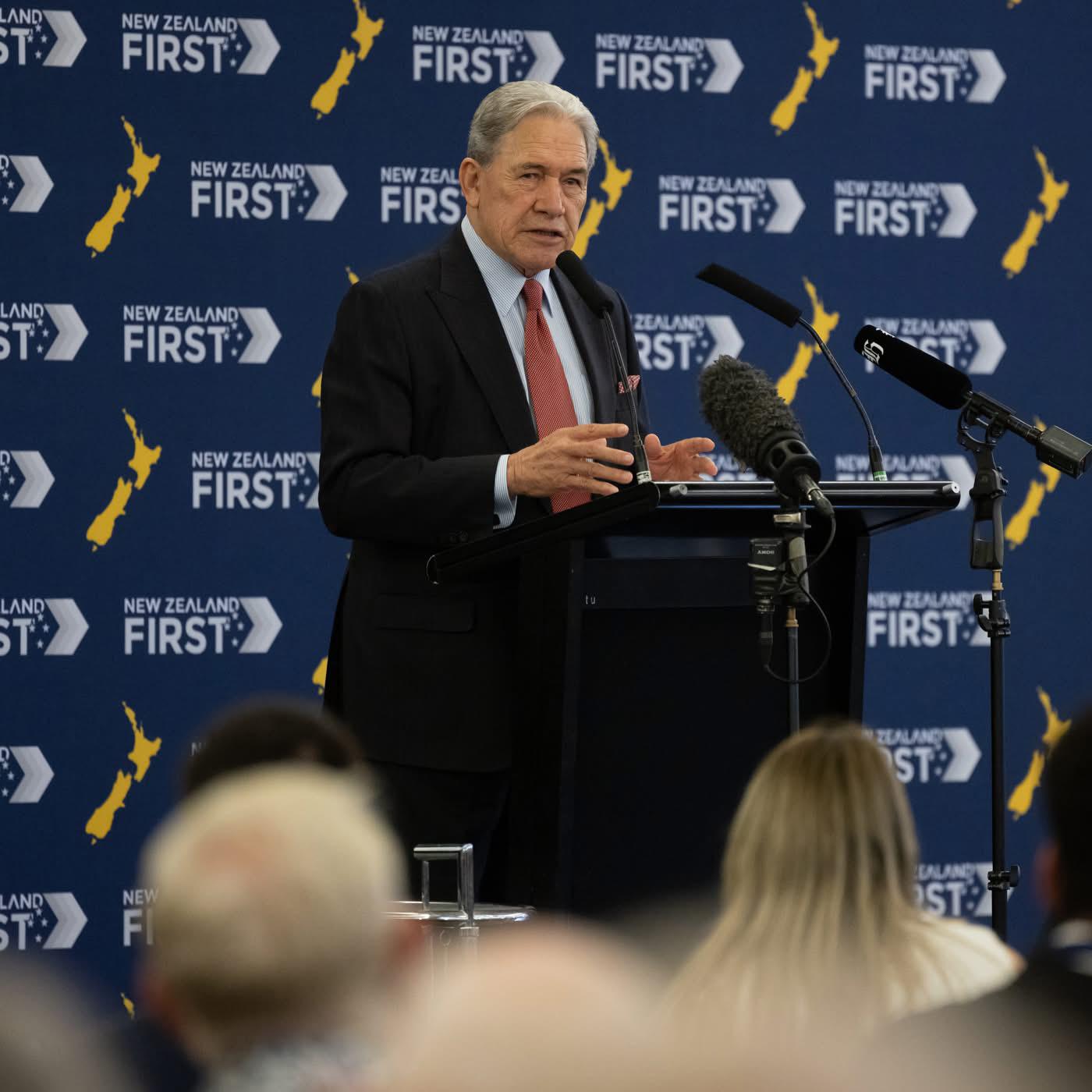|

Friend,
Around 9,000 farming families across New Zealand are considering
their Fonterra voting papers. The proposition is of critical
importance to the entire New Zealand economy: selling iconic dairy
brands like Mainland, Anchor, Kapiti and others to the largest dairy
company in the world, French firm Lactalis.
Farmers must consider this very carefully.
The decision is yours. We caution you to think not of the
short-term sugar hit from selling, but to the long-term security for
their children, grandchildren, and country.
Why? It is there in black and white. The sale terms provide
everything you need to know: after three years Lactalis can terminate
milk supply from Fonterra for Anchor and Mainland.
Or to put it in the jargon of Fonterra, “the initial term is three
years. Following the initial term, the Global Supply Agreement
automatically renews until it is terminated.”
“Automatically renews until it is terminated” is corporate flannel,
executive flimflam, tier one C-Suite rubbish that translates to:
‘after three years, we cancel.’
That’s it. Milk split. Fonterra will be a wholesaler. Lactalis will
control your brands.
Farmers, under this deal you will not control the very
thing that has underpinned your success for generations:
quality.
Why would we expect Lactalis to offer any long-term security to New
Zealand farmers? Every incentive is on Lactalis to do the opposite.
The most direct commercial lever they will have is to terminate their
supply deal, and dilute New Zealand milk with lower quality, cheaper
milk and vegetable fat.
Why would we believe Lactalis would want to secure New Zealand milk
for more than three years? If they do, why has Lactalis not offered a
longer supply agreement? If they meant it, it would be in the deal.
They want ten years of your raw milk for their own brands, but only
want your raw milk for three years for Anchor and Mainland.
And where is the Fonterra executive? They have not been open and
upfront. There has been a casual easiness about this sale, reported by
a pliant media and welcomed by middle manager analysts who couldn’t
run a tuck shop and don’t know what it means to have their livelihoods
at risk.
Fonterra issued a press release and did a media stand up in August.
Last Friday, they declined to do interviews and live on air we heard
Radio New Zealand offer excuses for their non-appearance.
This week, former Fonterra Council Chair James Barron did an
interview with limp defences of the serious questions we have asked.
Mr Barron was Chair when Fonterra’s balance sheet took a $880 million
hit from its ill-fated China Farms and Beingmate investments.
Fonterra executives have been invited to present their arguments to
Select Committees twice. They have declined to do so twice. This, from
a company that is a creature of statute and owes its existence to
legislation passed in 2001 providing favourable regulatory
settings.
Their ‘she’ll be right’ mentality is not the sign of hard-nosed
commercial realist. That is the sign of people who have been sucked in
and are expecting you to be too.
We, in a party called New Zealand First, are commercial
realists.
We know that this country’s economic fortunes rest upon the
hard-won sweat and tears of New Zealanders. You and your forebears,
starting in 1886, built Anchor with 130 years of product development,
consumer trust, just as all the other brands have been built.
For $4 billion, they are giving it away.
The short-sighted may have dollar signs in their eyes, having heard
that farmers stand to have hundreds of thousands put in their bank
account. But when the sugar rushes, the ants follow. Watch how quickly
that money goes.
Will your children thank you when the interest in our milk dries up
once Lactalis behaves like a rational commercial actor and reduces the
percentage of New Zealand milk in their products? They will feel that
decision at the farmgate price for years to come.
Fonterra tell you that these brands require billions to scale up.
This is nonsense. Fonterra’s new UHT plant in Edendale is said to cost
$30 million, and similar expansions are possible at similar costs.
Further, Fonterra already partners with other companies to use their
plants and equipment, like milk powder packaging in Christchurch and
high-end milk processing in Hawke’s Bay.
There are companies who would support partnership deals so Fonterra
can grow, but the short-term sugar hit is too appealing to those
chasing short-term incentive payments.
Did you notice that CEO Miles Hurrell did not respond to the open
secret put to him, that it is said he will depart Fonterra once his
year-end bonus is paid? The company offered a flimflam statement about
not having bonuses tied directly to this deal. Well, we know that.
That is not how corporate bonuses work. Fonterra will have baked this
deal into their full-year forecasts, and achieving that forecast is
what drives the bonus.
Some of us are here for the long-term future of this
country. If this deal proceeds, then perhaps we need to
revisit the regulatory environment for Fonterra. Fonterra is required
to sell a portion of its raw milk to other New Zealand producers, and
these rules have been relaxed in recent years.
Without the value-add of consumer brands owned by Fonterra, it is
reasonable to ask whether Fonterra should sell more of its milk to
other producers so they can develop New Zealand products.
Lactalis need to know that the preference position they seek to buy
and exploit is not guaranteed.
Farmers have a choice, and we hope they will make the right
decision.
In the end, we will ensure New Zealand’s economic interests
are safeguarded even if Fonterra executives do not.
Yours sincerely,
Rt Hon Winston Peters
Leader of New Zealand First
|